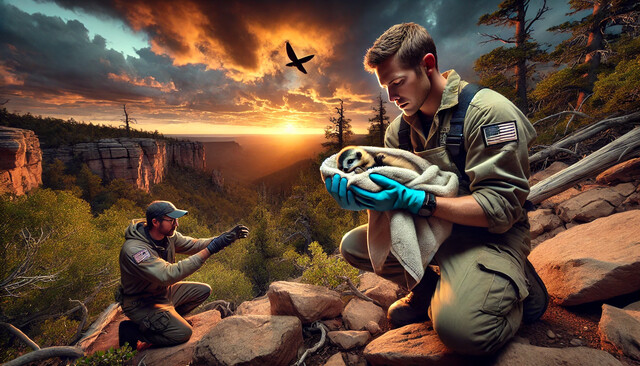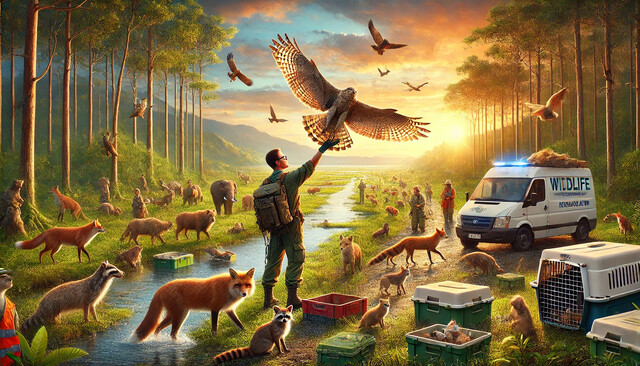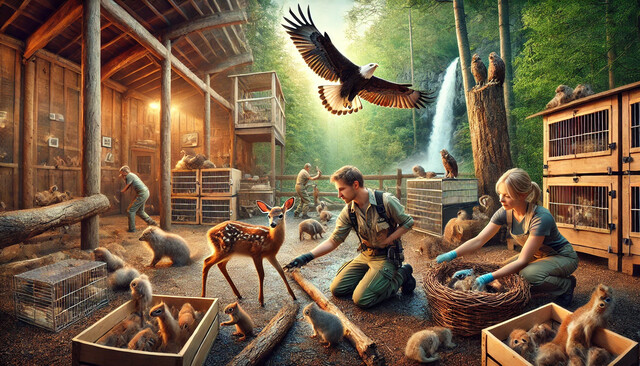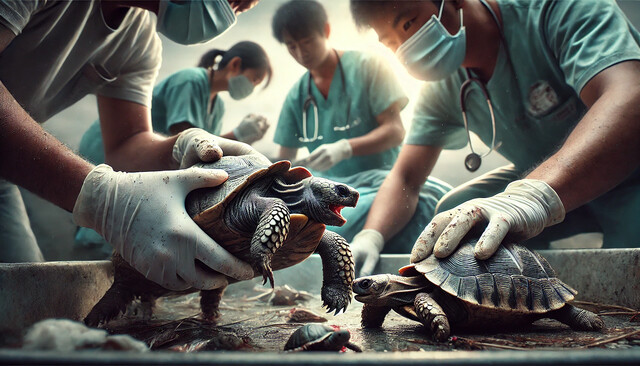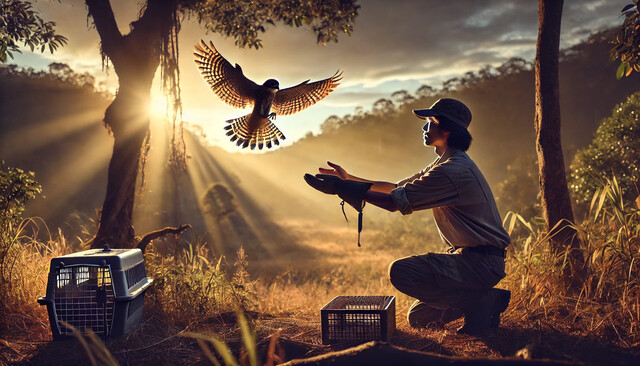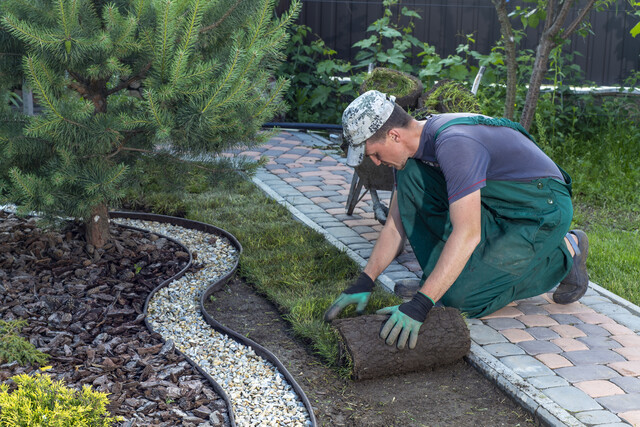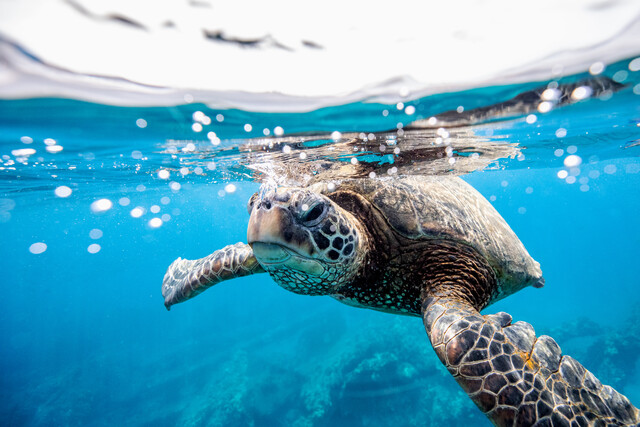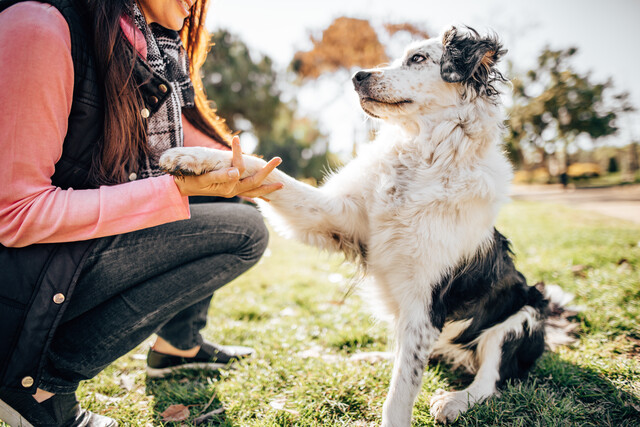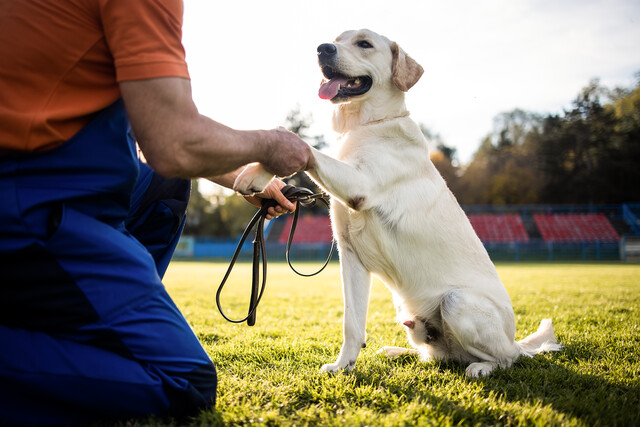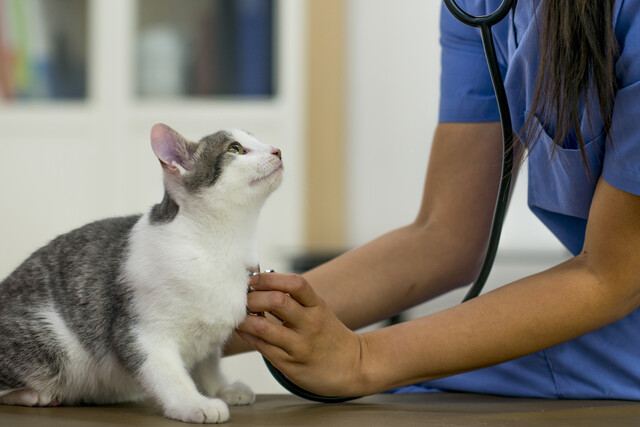Wildlife Rehabilitation: An Introduction
Revive, Restore, Rewild: Your Gateway to Wildlife Healing
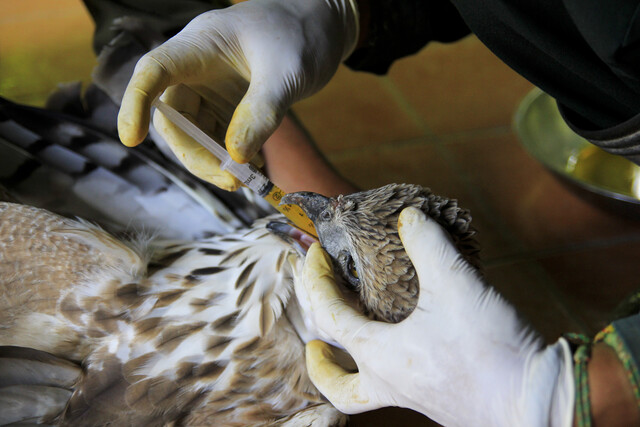
7 Hours average completion time
0.7 CEUs
12 Lessons
22 Exams & Assignments
163 Discussions
12 Videos
25 Reference Files
Mobile Friendly
Last Updated February 2024
Imagine the moment: a tiny, injured animal in your hands, frightened and vulnerable, unsure of its future. But with your knowledge and compassion, you give it a second chance at life. This is the heart of wildlife rehabilitation--a profession that merges science, skill, and compassion into one life-changing mission. Our Wildlife Rehabilitation Course is your path to becoming not just a caretaker of animals, but a guardian of the wild, someone who makes a real, tangible difference.
This course isn't just about learning the basics--it's about transforming your passion into expertise. Whether you're rescuing a bird entangled in netting, nurturing an orphaned fawn, or rehabilitating a wounded raptor back to health, this course prepares you for every challenge and triumph that comes with caring for injured or abandoned wildlife. You will develop the confidence to act swiftly in rescue situations, the skills to provide medical care, and the knowledge to support recovery until these animals can thrive again in their natural habitats.
But what makes this course truly exceptional isn't just the depth of information--it's the connection you'll build with the wildlife you help. You'll delve deep into species-specific care, learning the nuances of everything from songbirds and small mammals to reptiles and majestic raptors. Each creature has its own needs, behaviors, and health requirements, and you'll emerge from this course with a thorough understanding of how to address them all. This is more than a training program--it's a masterclass in empathy, science, and hands-on care that readies you for the real world of wildlife rehabilitation. With real-life case studies and in-depth discussions on complex topics--like handling nuisance wildlife and making tough decisions around euthanasia--you'll be prepared for even the most emotionally challenging aspects of the job.
Most importantly, you'll finish this course with a renewed sense of purpose. You'll not only know how to rehabilitate animals, but you'll understand how your work fits into a larger conservation effort, helping preserve biodiversity and protect fragile ecosystems. By the time you complete this course, you'll be more than ready to step into the field, equipped with both the knowledge and the heart to make a lasting impact.
Now is the time to transform your love for animals into something powerful. Don't just stand on the sidelines--become the hero wildlife needs. Take this course and start making a difference today.
- Nutrition and diet management
- Habitat adaptation for rehabilitation
- Evaluating animal readiness for release
- Animal anatomy and behavior comprehension
- Ethical decision making in rehabilitation
- Species-specific care understanding
- Implementing biodiversity conservation strategies
- Disease and injury treatment skills
- Wildlife safety and handling
- Communication with veterinary professionals
- Balancing human and animal welfare
Choose from plans starting at just $16/month (billed annually)
See Your Team Succeed
Empower your team instantly with an integrative group enrollment system. Purchase licenses in bulk with Group Discounts.


